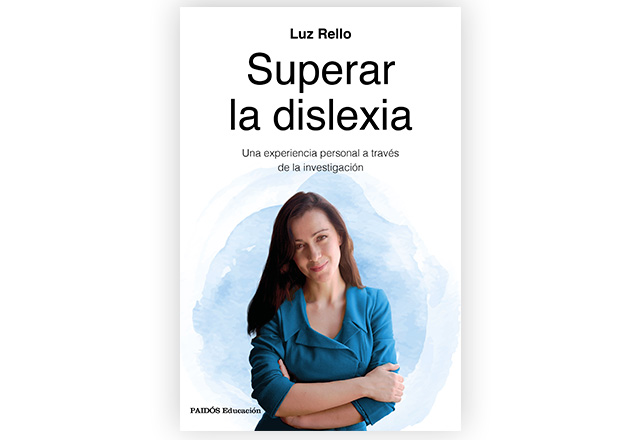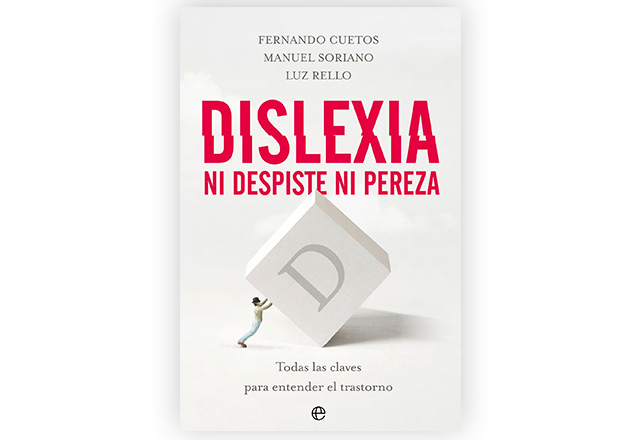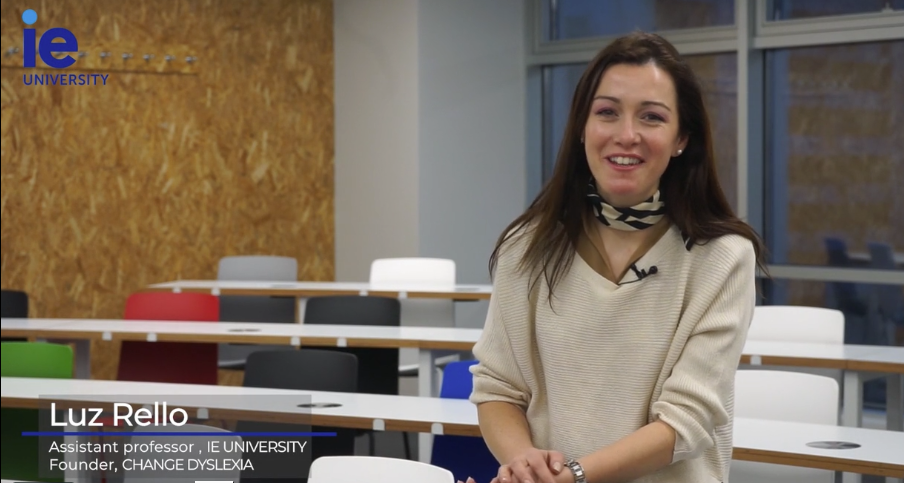Luz Rello
“DREAMS ARE NOT TO BE READ, THEY ARE MADE TO COME TRUE”
Luz Rello, one of the most recognized young scientists in Spain, presents a guide for parents and educators to fight and overcome dyslexia. She is graduated in Linguistics, she is a doctor in Computer Science from the Pompeu Fabra University, Ashoka Fellow and associated researcher in the University Carnegie Mellon.
In 2016, she created the social company Change Dyslexia, from which she works with an interdisciplinary team on the dyslexia early detection and offers resources to overcome the learning difficulties that it generates.
She has received several awards and recognitions, such as the European Young Researcher Award from the EuroScience Foundation in 2013, the Social Innovator of the Year from the MIT Technology Review in 2014, the Princesa de Girona Award in 2016 and, in 2017, she was included in the Forbes 30 Under 30 List.
As a kid, I used to memorize books to pretend that I could read as fast as the other kids. But I could not: I was dyslexic.

Superar la Dislexia
Overcoming Dyslexia
Written in Spanish
The 10% of the population suffers from dyslexia, which means that in Spain there are around 600 000 dyslexic kids that do not know it. A “scholar crusher” that doom them to academic failure without even being conscious of it. Luz Rello was also a dyslexic kid and, after years of research, she presents a book with all the tools we currently have to fight dyslexia and to help kids to make their dreams come true.
Personal and heartrending, but also meticulous, Superar la Dislexia offers the story of the author and gives us the tools and resources that parents, therapists and teachers need to offer an adequate support.
Dislexia. Ni despiste ni pereza
Dyslexia. Not a lapse, not laziness
Written in Spanish
Three recognized experts on dyslexia help us to understand better this disorder that has been hidden for too long and that directly affects learning. However, it does not prevent those who suffer from it to have a normal life, or a full and happy life, as it has been proven by great entrepreneurs or scientists. Many of its strengths –ability to think about creative solutions, fast visual and spatial processing or comprehensive reasoning– can turn into advantages with time.
Unlike some may think, people with dyslexia are not lazy or distracted. They simply have dyslexia.



